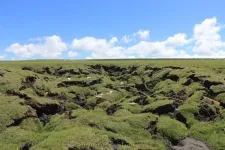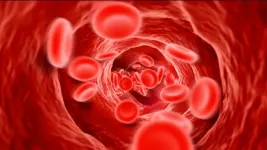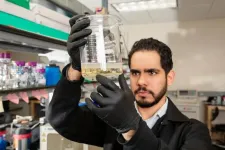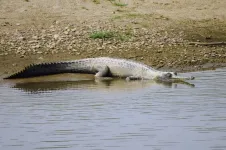(Press-News.org) Papua New Guinea (PNG) has a wide range of environments, each presenting unique challenges to human survival. Highlanders and lowlanders of PNG are striking examples of populations facing distinct environmental stress. Whereas the highlanders encounter low oxygen availability due to altitude, the lowlanders are exposed to specific pathogens that are absent in the highlands, such as malaria. Despite these strong environmental pressures, the specific adaptations of these populations have remained overlooked. A new study published in Nature Communications on Tuesday, 30 April 2024 sheds light on the genetic adaptations of Papua New Guineans in response to their unique environmental pressures.
The new findings presented rely on new whole-genome sequences from highlanders and lowlanders from Papua New Guinea. The data was collected by the Papuan Past project, which brings together researchers from the universities of Tartu (Estonia), Toulouse (France), and Papua New Guinea. “We explored the signatures of selection in newly sequenced whole genomes of 54 PNG highlanders from Mt Wilhelm (Chimbu Province) and 74 PNG lowlanders from Daru Island (Western Province). We hypothesised that the genomes of both populations have been shaped differently to mitigate the detrimental effects of their respective environments,” explains Dr François-Xavier Ricaut, CNRS researcher at the Centre de Recherche sur la Biodiversité et l'Environnement (University of Toulouse, France), the project leader and corresponding author.
“The genetic variants under selection identified in our study show associations with blood-related phenotypes,” says Dr Mathilde André, the lead author from the Institute of Genomics (University of Tartu, Estonia). One of these genetic variants under selection in Papua New Guinean highlanders might impact the red blood cell count. A higher red blood count helps the highlander adapt to the lower oxygen availability in the highlands. On the contrary, the selected variant in the lowlanders is associated with the percentage of white blood cells. “This supports the idea that hypoxia might have been the main driving force of selection that has acted on Papua New Guinean highlanders. However, specific pathogens might have shaped the genome of lowlanders through selection,” adds Dr André.
Dr Nicolas Brucato, a co-author from the University of Toulouse, continues, “Interestingly, both the variants also affect the heart rate of individuals with those mutations. This multiplicity highlights the complexity of interpreting the role of genetic mutations. One mutation can affect multiple phenotypes altogether.”
Dr Mayukh Mondal from the Institute of Genomics, who co-led the project, adds, “Interestingly, one of the top candidates for selection in lowlanders has a non-human origin.” Denisova is one of the archaic hominin populations living in Asia before modern humans settled in Papua New Guinea around 50 thousand years ago. Although Denisova quickly went extinct around that time, they have interbred with Papua New Guinean ancestors and left their legacy in the genome of modern Papua New Guineans. This study suggests that a genetic mutation in Denisova that impacts a specific protein structure has been directly passed to Papua New Guinean genomes. “It looks like the altered protein is beneficial for the lowlanders to survive in their environment. Although we do not know the exact cause of this selection, this mutation might help the lowlanders overcome malaria,” concludes Dr Mondal.
This new insight into how local adaptation has shaped the genomes and phenotypes of Papua New Guinean highlanders and lowlanders differently points out the necessity of investigating populations with diverse backgrounds to shed light on the key aspects of human biology.
Further information: Papuan Past Project – Archaeology and Genetics in Papua New Guinea (papuanpast.hypotheses.org/)
Keywords: Evolution, Selection, Phenotype, Blood
END
Genetic adaptations have impacted the blood compositions of two populations from Papua New Guinea
2024-04-30
ELSE PRESS RELEASES FROM THIS DATE:
Abrupt permafrost thaw intensifies warming effects on soil CO2 emission
2024-04-30
According to a recent study published in Nature Geoscience, scientists have found that soil carbon dioxide (CO2) emissions are more sensitive to climate warming in permafrost-collapsed areas than in non-collapsed areas.
This study, based on field warming experiments combined with laboratory incubation of soils from a large-scale sampling, provides new insights about permafrost carbon–climate feedback in the context of future climate warming.
Warmer temperatures have led to rapid permafrost thawing in high-latitude and -altitude permafrost regions. Abrupt permafrost thaw, ...
Scientists discover over 100 new genomic regions linked to blood pressure
2024-04-30
National Institutes of Health researchers and collaborators have discovered over 100 new regions of the human genome, also known as genomic loci, that appear to influence a person’s blood pressure. Results of the study also point to several specific genomic loci that may be relevant to iron metabolism and a type of cellular receptor known as adrenergic receptors.
The study, published in Nature Genetics, is one of the largest such genomic studies of blood pressure to date, including data from over 1 ...
Researchers identify over 2,000 genetic signals linked to blood pressure in study of over one million people
2024-04-30
The Queen Mary-led study reveals the most detailed picture yet of genetic contributors to blood pressure. The findings lead to improved polygenic risk scores, which will better predict blood pressure and risk for hypertension.
Researchers led by Queen Mary University of London and supported by the National Institute for Health and Care Research (NIHR) have discovered over a hundred new regions of the human genome, also known as genomic loci, that appear to influence a person’s blood pressure. In total, over 2,000 independent genetic signals for blood pressure are now reported, demonstrating that blood pressure is a highly complex trait influenced by thousands ...
Scientists find cancer-like features in atherosclerosis, spurring opportunity for new treatment approaches
2024-04-30
Researchers have discovered that the smooth muscle cells that line the arteries of people with atherosclerosis can change into new cell types and develop traits similar to cancer that worsen the disease. Atherosclerosis is characterized by a narrowing of arterial walls and can increase risk of coronary artery disease, stroke, peripheral artery disease, or kidney disorders. The findings, supported by the National Institutes of Health (NIH), could pave the way for the use of anti-cancer drugs to counteract the tumor-like mechanisms ...
A virus could help save billions of gallons of wastewater produced by fracking
2024-04-30
EL PASO, Texas (April 30, 2024) – An estimated 168 billion gallons of wastewater — or produced water — is generated annually by the Permian Basin fracking industry, according to a 2022 report by the Texas Produced Water Consortium. The major waste stream has proved both difficult and costly to treat because of the chemical complexity of the water.
In a new study published in the journal Water, researchers at The University of Texas at El Paso have identified a novel means of treating the wastewater generated by oil and gas production: bacteriophages.
Ramón Antonio Sánchez, a doctoral candidate within UTEP’s chemistry ...
MSD joins the Open Targets consortium
2024-04-30
Open Targets, a public-private partnership dedicated to pre-competitive drug discovery research, today announced MSD, the tradename of Merck & Co., Inc., Rahway, N.J., USA, as the latest partner to join the consortium. Open Targets aims to accelerate the development of safe and effective medicines by leveraging cutting-edge technologies to identify, prioritise, and validate potential drug targets. MSD’s expertise in drug discovery will complement the strengths of the current partners: EMBL’s European Bioinformatics Institute (EMBL-EBI), the Wellcome Sanger Institute, GSK, Sanofi, Pfizer, and Genentech, ...
U of T researchers target neurogenesis in new approach to treat Parkinson’s disease
2024-04-30
Researchers at the University of Toronto have found a way to better control the preclinical generation of key neurons depleted in Parkinson’s disease, pointing toward a new approach for a disease with no cure and few effective treatments.
The researchers used an antibody to selectively activate a receptor in a molecular signaling pathway to develop dopaminergic neurons. These neurons produce dopamine, a neurotransmitter critical to brain health.
Researchers around the world have been working to coax stem cells to differentiate into dopaminergic ...
Microbiome researchers challenge the state of the art in colon cancer biomarker discovery
2024-04-30
Leuven (Belgium) 30/04/2024 - For the first time, researchers from VIB-KU Leuven, UZ Leuven, Janssen Pharmaceutica and multiple international collaborators have introduced quantitative methods and extensive confounder control to discover microbiome biomarkers in colorectal cancer development. While multiple microbial taxa have been put forward as potential cancer-associated biomarkers in the past, this new study uncovers obscured contributions that may have resulted in incorrect associations. The results have been published in Nature Medicine.
Cancer ...
Unveiling nature's custodians: groundbreaking study highlights crucial role of scavengers in wetlands
2024-04-30
A pioneering study highlights the importance of carrion and scavengers in wetlands on a global scale. A study by researchers from the Ecology area of the Miguel Hernández University of Elche (UMH) and the Ecology department of the University of Alicante (UA) reveals the fundamental importance of scavengers and carrion in wetlands. The article, published in Biological Reviews, emphasizes that the benefits provided by scavengers far outweigh the potential drawbacks. Among their essential functions are the recycling and transportation of nutrients and the regulation of water quality, benefiting the entire ecosystem, from soil and plants to birds and mammals.
Historically, ...
Data scarcity challenges identification of endocrine disruptors
2024-04-30
As a result, the researchers recommend updating the information requirements in the EU legislation, REACH. They also propose various approaches for evaluating chemical substances to ensure that all available information is fully utilized.
Researchers from DTU National Food Institute and the University of Southern Denmark have screened the scientific literature for the Danish Environmental Protection Agency to find substances showing signs of endocrine disrupting properties and thus being potentially harmful to humans and ...







